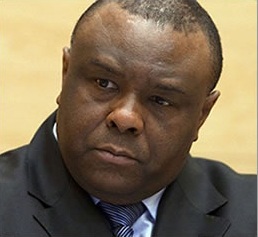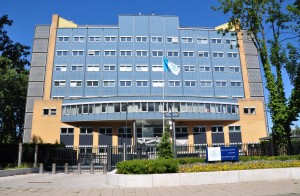by Rita Yip
 On Tuesday 31 May 2016, the closing statements in the first contempt case tried before the International Criminal Court (ICC), The Prosecutor v. Jean-Pierre Bemba Gombo, Aimé Kilolo Musamba, Jean-Jacques Mangenda Kabongo, Fidèle Babala Wandu and Narcisse Arido, will be made publicly and are expected to last three days.
On Tuesday 31 May 2016, the closing statements in the first contempt case tried before the International Criminal Court (ICC), The Prosecutor v. Jean-Pierre Bemba Gombo, Aimé Kilolo Musamba, Jean-Jacques Mangenda Kabongo, Fidèle Babala Wandu and Narcisse Arido, will be made publicly and are expected to last three days.
Jean-Pierre Bemba Gombo – the former vice-president of the Democratic Republic of Congo – and four other accused are charged for offences against the administration of justice under Article 70 of the Rome Statute. The Prosecution alleges that the accused collectively engaged in a scheme to corruptly influence, illicitly coach and bribe fourteen defence witnesses for false testimony during the trial of The Prosecutor v. Jean-Pierre Bemba Gombo between 2011 -2013.
The five accused were arrested in November 2013 and were detained at the United Nations Detention Unit in The Hague for almost one year. On 21 October 2014, the Pre-Trial Chamber granted interim release to the four accused – except Jean-Pierre Bemba Gombo, who remained in custody since 2008.
The trial hearings before the Trial Chamber VII commenced on 29 September 2015. The Prosecution called 13 witnesses and the five Defence teams collectively called six witnesses, including experts in the field of audio recordings, Austrian law and African solidarity.
The closing statements are expected to last three days. The Prosecution and the Defence teams will present its arguments and respond to the others parties’ arguments articulated in their closing submissions filed on 24 May 2016. Two of the accused – Aimé Kilolo Musamba, Jean-Pierre Bemba Gombo’s former Defence Lead counsel and Fidèle Babala Wanda, Jean-Pierre Bemba Gombo’s political associate, have been granted the request to give an unsworn statement during the closing statements.
Earlier this year, on 21 March 2016, Jean-Pierre Bemba was found guilty of two counts of crimes against humanity (murder and rape) and three counts of war crimes (murder, rape and pillaging) for crimes that were committed in Central African Republic in 2002 and 2003.


